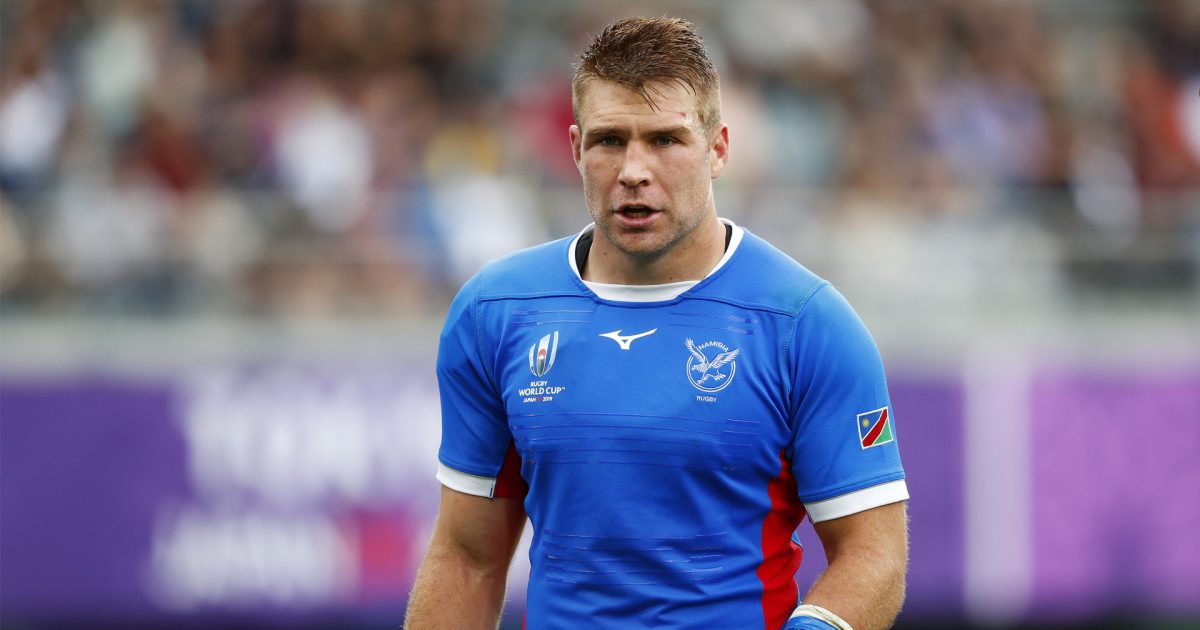10-day trial by fire set to decide final Rugby World Cup qualifier out of Africa

While the global pandemic has been a major disrupter at all levels of the game, it’s the teams who are still vying for spots at the 2023 Rugby World Cup who have arguably been most affected.
The likes of South Africa and Japan weren’t able to play any matches in 2020 while other top sides from around the world found their schedules changing on the daily but at least some semblance of normality returned last year.
The same can’t necessarily be said for the emerging nations around the world, however. While past World Cup winners England, Australia and New Zealand may have lost significant revenue and a cluster of fixtures, their four-year World Cup cycle hasn’t really changed significantly. For the teams who have limited opportunities to play test matches but have to somehow prepare for World Cup qualification, it’s fair to say the past two years have been nightmarish.
Samoa and Tonga played off last July to determine who would qualify as the Pacific representative at the 2023 World Cup, despite neither side having any significant rugby under their belts since the last tournament in 2019.
It was a similar story for the Americas qualifiers who played a spate of matches over the second half of the season to decide who would progress straight through to the 2023 event and who would be left to fight it out for a spot in the final repechage tournament. Canada were the big losers in these matches, going down to the USA (in their first tests since 2019) and Chile to see them miss out on a World Cup for the first time in the competition’s history.
Of course, the tier-two and three sides have always faced the toughest conditions over the years, and even if they do manage to qualify for rugby’s showpiece event, they tend to face the toughest schedules. Thankfully, that’s no longer set to be the case at 2023 with more evenly distributed rests between matches than in tournaments of the past. Unfortunately, however, that luxury isn’t set to be extended to this year’s major qualifying tournament between the top rugby-playing nations of Africa, with World Rugby unveiling a draw this week that will prove incredibly challenging for the eight teams involved.
The national sides of Namibia, Zimbabwe, Kenya, Ivory Coast, Uganda, Senegal, Burkina Faso and Algeria will all converge in France later this year to take place in the 2022 Africa Cup, which will be a strict eight-team knockout competition (quarter-finals, semi-finals and a grand final) to determine the Africa qualifier for next year’s World Cup. The winner will be placed into Pool A alongside New Zealand, France, Italy and Uruguay.
Congratulations to the teams who have qualified for Rugby Africa Cup Pools 2022 🏉💪#RAC2021 #RugbyAfricaCup #WhyWePlay #AfricaAsOne #Rugby pic.twitter.com/UPbSXPoX9q
— Rugby Afrique (@RugbyAfrique) July 23, 2021
The major kicker, however, is that the tournament will be played over just 10 days. While every team will be on equal footing, it’s difficult to envisage a situation where the likes of Ireland, Wales or South Africa would be expected to play through a similar gauntlet of matches over such a short period to decide a crucial World Cup spot.
Based on historical results, the tournament will be a straight shoot-out between Namibia, Zimbabwe and perhaps Kenya for World Cup qualification, although Namibia will enter the 10-day event as clear favourites.
While the Welwitschias did suffer a shock loss to Ivory Coast during last year’s fixtures, no such result will be anticipated when Namibia have all their players on deck and a spot on rugby’s highest stage is on the line.
The losing finalist will then join the repechage tournament, where they will face off with the best-of-the-rest teams from the Americas, Europe and Asia.
The Rugby Africa Cup will kick off on 1 July with the final set to be played on July 10. All matches will be hosted in Marseille and Aix-en-Provence.

































